Understanding the Causes of Noises in Your HVAC System
Have you ever wondered, “Why is my HVAC system making noise?” It’s a common concern among homeowners, as strange sounds can indicate potential issues within your heating, ventilation, and air conditioning system. Understanding the root causes of these noises can help you address problems early and maintain a comfortable indoor environment. Here are some typical sounds you might hear from your HVAC system and what they might mean.
Types of Noises in HVAC Systems
Different sounds coming from your HVAC system can signal various problems. Here’s a list of common noises and their possible causes:
- Banging or Clanging: This noise often points to a loose or broken part within the system. It could be ductwork that’s come loose or even a failing motor. Ignoring this can lead to bigger problems down the line.
- Hissing: A hissing sound may indicate a refrigerant leak. This can lead to decreased efficiency and potential damage to the compressor if not addressed quickly.
- Whistling: If you hear whistling while your HVAC is running, it could mean there are air leaks in the ductwork. This can decrease efficiency and increase energy bills.
- Rattling: Rattling noises might be due to loose components within the unit or something in the outdoor unit getting caught up in the fan. Regular maintenance can help prevent these issues.
- Buzzing: A buzzing sound could suggest an electrical issue or a problem with the fan motor. You should have this checked out to avoid safety hazards.
Common Causes of Noises
To dive deeper into why your HVAC system might be making these noises, consider these common causes:
| Noise Type | Potential Causes |
|---|---|
| Banging | Loose parts, damaged motor, or faulty blower |
| Hissing | Refrigerant leak or expansion valve issues |
| Whistling | Air leaks in ductwork |
| Rattling | Loose components or foreign objects in the fan |
| Buzzing | Electrical issues or malfunctioning motor |
When to Seek Professional Help
Determining when to call a professional can be tough. Here are some signs that warrant a service call:
- If the noise persists after cleaning or tightening components.
- If your system starts to blow warm air consistently.
- If you notice a sudden increase in energy bills without a change in usage.
- If the HVAC unit leaks fluid or the area around it shows signs of moisture.
In cases where the noise is accompanied by warning lights or malfunctions, seek help right away. It’s crucial to prioritize safety and comfort in your home.
Preventive Tips for Noise Reduction
Implementing some preventive measures can significantly reduce the chance of noises coming from your HVAC system:
- Schedule regular maintenance checks to clean and inspect your system.
- Keep the area around your HVAC unit clear of debris or obstructions.
- Replace air filters regularly to improve airflow and efficiency.
For further tips on HVAC maintenance and troubleshooting, consider visiting The ACHR News or Energy.gov. These resources can provide valuable insights into keeping your HVAC system in top shape.
Understanding why your HVAC system is making noise is key to addressing any underlying issues. By being proactive and attentive to the sounds your system produces, you can maintain a comfortable home and potentially extend the life of your HVAC equipment.
Identifying Common HVAC Noises and What They Mean
Your HVAC system plays a key role in keeping your home comfortable year-round. However, if it starts making unusual noises, it can be a cause for concern. When you hear these sounds, it’s essential to identify their source to determine if you need repairs. Let’s explore some common HVAC noises and what they might indicate.
Rattling Sounds
If you hear a rattling noise coming from your HVAC system, it could mean there is a loose part or debris inside the unit. This can be anything from a loose screw to a broken fan blade. Ignoring rattling noises can lead to further mechanical problems. Always address the issue promptly to prevent potential damage or inefficiency.
Banging or Thumping
Banging sounds often signal a more serious issue. This might happen if there’s a problem with the blower or if something is obstructing the system’s operation. It can also indicate that a part inside the compressor has become loose or broken. If you hear this noise, it’s advisable to turn off your system and have a professional check it out.
Screeching or Squealing
Screeching or squealing noises can signify that the fan belt is worn out or in need of lubrication. If you hear this sound, it’s important to act quickly. Wearing belts can slip or break, compromising your system’s efficiency and possibly leading to a complete breakdown.
Hissing Noises
Hissing sounds are often associated with refrigerant leaks. If your HVAC is making this noise, it could mean that the refrigerant is escaping the system. Not only does this affect your home’s cooling efficiency, but it can also be harmful to the environment. Call a professional to address this issue as soon as possible.
Clicking Sounds
When you hear clicking noises, it might simply be the HVAC starting up. However, if the clicking persists, it could be a sign of a malfunctioning thermostat or issues with the unit’s electrical components. A qualified technician should inspect the controls to ensure everything is operating smoothly.
Whistling Sounds
If your HVAC system is making a whistling noise, it can indicate that there’s an air leak in your ductwork. This air leak can compromise the system’s efficiency by allowing cooled or heated air to escape. Proper sealing of these leaks can enhance the performance of your HVAC and reduce energy costs.
Please Note
It’s vital to **regularly maintain your HVAC system** to ensure it operates efficiently. Scheduling annual check-ups with a licensed technician can help prevent these noises and the problems associated with them. Here are some maintenance tips:
- Replace air filters every 1-3 months.
- Check your outdoor unit for debris and clear it regularly.
- Inspect and clean your ducts and vents at least once a year.
- Keep an eye on your system’s refrigerant levels.
Before You Call for Help
Before reaching out to a professional, try some basic troubleshooting. Check your system’s thermostat settings and ensure the circuit breaker hasn’t tripped. A quick inspection can save you time and money.
Professional Help
If the noises persist after your efforts, it’s time to consult an expert. A knowledgeable technician can accurately diagnose the problem and suggest the best course of action. Resources like HVAC.com and Angie’s List can help you find qualified professionals in your area.
Addressing the noises coming from your HVAC system right away can save you from larger repair bills in the future. Trust your instincts, and don’t hesitate to seek help if you think something is wrong. Understanding what your HVAC noises mean is the first step in maintaining a safe and comfortable home.
The Impact of HVAC Noise on Your Comfort and Well-being
Your HVAC system is essential for maintaining a comfortable home environment. However, when it begins to make unexpected noises, it can lead to discomfort and concerns about its efficiency. Understanding the impact of HVAC noise on your overall well-being can help you address these issues before they become significant problems.
HVAC noise can range from subtle humming to alarming banging or clanking sounds. Each type of noise typically points to a different issue. Here are some common sounds you might hear:
- Banging: This may indicate loose parts or issues with the ductwork.
- Squealing: Often due to a worn-out belt or motor, which needs attention.
- Hissing: This could be a refrigerant leak or air escaping from a broken duct.
- Buzzing: Usually a sign of electrical issues or loose components.
Understanding these noises is crucial because they can affect your comfort. For instance, a loud HVAC system can prevent you from enjoying a peaceful evening at home. Or, if the system is frequently cycling on and off due to an issue, it may lead to temperature fluctuations, making your living space uncomfortable.
Moreover, persistent HVAC noises can also impact your mental health. A consistently noisy environment can lead to increased stress levels, which may cause anxiety and affect sleep quality. To keep your home a sanctuary, it’s vital to address any concerning noises promptly.
But how can you manage HVAC noise effectively? Here are a few strategies:
- Regular Maintenance: Schedule annual inspections with a qualified technician. This ensures that potential issues are caught before they develop into louder problems that disrupt your comfort.
- Soundproofing: If noise persists, consider soundproofing measures. This can include installing sound barrier materials around the HVAC unit or using rugs and heavy curtains to absorb sound.
- Upgrade Your System: If your system is old and noisy, it might be time for an upgrade. Newer models are often quieter and more energy-efficient, which can improve your comfort and lower utility bills.
The frequency of HVAC noise can also have a broader impact. For example, if the noise is excessively loud and disruptive, it could signal that your unit is working harder than it should. This not only impacts comfort but may also result in higher energy consumption and increased utility bills. Using energy-efficient units can alleviate some of these costs and contribute to a more comfortable living environment. Consider visiting Energy.gov for tips on choosing energy-efficient systems.
When your HVAC system operates well and quietly, it enhances your living experience. You gain more than just comfort; it contributes to better sleep patterns, lower stress levels, and overall improvement in your quality of life. You can manage noise-related issues effectively, leading to a more peaceful and comfortable atmosphere.
Paying attention to noise patterns can also help detect more significant problems early on. Don’t ignore the signs! If your HVAC system starts making unusual noises, consider reaching out to professionals for an evaluation. Websites like The Air Conditioning, Heating, and Refrigeration News provide insights on how to maintain and improve your HVAC system.
The impact of noise is not limited to just comfort. It can influence your well-being at a deeper level. Focus on addressing any issues promptly to keep the comfort levels high in your home. When HVAC systems run smoothly and quietly, you foster a peaceful environment conducive to relaxation and happiness.
| Noise Type | Possible Issue | Recommended Action |
|---|---|---|
| Banging | Loose parts or ductwork | Inspect and tighten components |
| Squealing | Worn-out belt or motor | Replace defective parts |
| Hissing | Refrigerant leak | Contact a technician for repairs |
| Buzzing | Electrical problems | Check electrical connections |
Your HVAC system is meant to provide comfort without disturbance. Keeping you informed about the noises can help you maintain both comfort and well-being in your home. Don’t hesitate to take appropriate action as soon as you notice something out of the ordinary in your system. Doing so will enhance your overall quality of life.
Preventative Maintenance Tips to Minimize HVAC Noise
HVAC systems are essential for maintaining comfortable indoor environments, but they can sometimes create unwanted noise. This noise can be distracting and may indicate underlying issues. Regular preventative maintenance is crucial to minimize noise levels and ensure that your HVAC system operates smoothly. Below are tips that can help reduce HVAC noise.
Regular Inspection and Cleaning
Keeping your HVAC system clean is the first step in minimizing noise. Dust and debris can build up in key components, causing disruptions in airflow and leading to strange sounds.
- Filters: Change or clean your filters every one to three months. Clogged filters can restrict airflow and cause your system to work harder, leading to more noise.
- Vents and Ducts: Ensure that vents and ducts are clean and free of obstructions. A professional duct cleaning service can help with this.
Lubricate Moving Parts
Many parts of your HVAC system have moving components that can create friction. Regularly lubricating these parts can help reduce noise levels.
- Motors: Check the fan and blower motors. Apply a lubricant recommended by your manufacturer to ensure they run quietly.
- Bearings: Bearings need regular maintenance. Lubricate them to prevent squealing sounds that can arise from wear and tear.
Check for Loose Components
Over time, your HVAC system may develop loose components which can rattle or vibrate when in use.
- Screws and Bolts: Inspect screws and bolts within your unit. Tighten any that are loose to prevent vibrating sounds.
- Panels: Make sure all panels and covers are secured properly. Loose panels can create annoying rattling sounds.
Install Vibration Isolators
If your HVAC system produces vibrations that can lead to noise, consider installing vibration isolators. These components can dampen the sound and reduce the impact on your walls and floor. They are an inexpensive way to minimize noise pollution from your HVAC system.
Insulate Ductwork
Insulating your ductwork can help minimize noise as well. An uninsulated duct can amplify sounds from airflow.
- Sound Dampening Materials: Use sound dampening insulation materials around your ductwork to absorb and reduce noise.
- Sealing Ducts: Ensure that all seams and joints in your ductwork are sealed to prevent whistling sounds that can emanate from leaks.
Schedule Professional Maintenance
Hiring a professional to conduct regular maintenance checks is vital for the longevity and quiet operation of your HVAC system.
- Annual Check-ups: Schedule annual inspections with a certified HVAC technician to identify potential issues before they escalate.
- System Tune-Ups: Technicians can perform tune-ups, helping to keep your system running efficiently and quietly.
It’s also important to consider how you operate your HVAC system. Simple adjustments can help in managing noise levels effectively. For instance, using settings that maintain a consistent temperature rather than constant fluctuations can help. Additionally, using a programmable thermostat can optimize performance while reducing unnecessary noise.
| Action Item | Frequency | Benefits |
|---|---|---|
| Change Filters | Every 1-3 Months | Improves airflow, minimizes noise |
| Check Lubrication | Seasonally | Reduces friction noise |
| Tighten All Screws/Bolts | Annually | Prevents rattling sounds |
| Professional Maintenance | Annually | Ensures overall system longevity |
By implementing these preventative maintenance tips, you can minimize the noise of your HVAC system. Staying proactive not only enhances your comfort at home but also prolongs the life of your heating and cooling units. For more detailed information regarding HVAC maintenance and noise reduction, consider visiting resources like Energy.gov or HVAC.com, which provide comprehensive guides on maintaining your HVAC system.
When to Call a Professional: Signs Your HVAC System Needs Attention
Your HVAC system plays a crucial role in keeping your home comfortable, but sometimes it may show signs that it needs professional help. Recognizing the right time to call a technician can save you from further complications and expenses. Here are some signs indicating that your HVAC system requires immediate attention.
Unusual Sounds
If your HVAC system is making strange noises, it’s a clear signal that something isn’t right. Here are common sounds to watch out for:
- Banging or Clanking: This might indicate loose parts or a failing component.
- Squeaking or Screeching: These sounds can suggest a problem with the motor or belt.
- Hissing: This may indicate a refrigerant leak.
Never ignore these noises. They can lead to bigger issues if unresolved.
Inconsistent Temperature
If you’re experiencing uneven temperatures throughout your home, it could signify a problem with your HVAC system. Some rooms might be too hot while others are too cold. This inconsistency can stem from:
- Poor insulation
- Blocked vents
- Malfunctioning thermostats
Getting to the root of this issue early can prevent your system from overworking, which could lead to system failure.
Increased Energy Bills
Are your energy bills rising despite consistent usage? A spike in your utility bills may indicate that your HVAC system is struggling to maintain efficiency. Possible reasons include:
- Dirty filters
- Age-related wear and tear
- Leaks in your ductwork
If you notice this trend, it is wise to schedule a professional inspection. [Energy Star](https://www.energystar.gov/) offers tips on improving energy efficiency that could aid you in managing costs.
Bad Odors
Unpleasant smells from your HVAC system should never be ignored. Different odors can signify different issues:
- Musty or Moldy Smell: This could be a sign of mold growth in the system.
- Burning Smell: This might indicate overheating or electrical problems.
Contacting a professional is essential to identify the source of these odors and mitigate health risks associated with poor air quality.
Frequent Cycling
If your HVAC system frequently turns on and off, it’s called short cycling. This could lead to unnecessary strain on the system, leading to breakdowns. Possible causes include:
- Improperly sized units
- Faulty thermostats
- Restricted airflow
Addressing short cycling early can extend the life of your HVAC system and ensure consistent comfort in your home.
Humidity Issues
High levels of humidity in your home may indicate that your air conditioner is not functioning properly. A well-working HVAC system should manage humidity levels effectively. Check for:
- Condensation on walls and windows
- Visible mold growth
If your home’s humidity levels are inappropriate, an HVAC professional can recommend appropriate solutions such as dehumidifiers or system repairs.
Thermostat Issues
You rely on your thermostat to manage temperature settings, and if it’s not working correctly, your HVAC system will struggle to maintain the desired climate. Look for these signs:
- Inaccurate temperature readings
- Thermostat unresponsive to adjustments
An HVAC technician can repair or replace malfunctioning thermostats to ensure your home remains comfortable.
When you notice these signs, don’t hesitate to call a professional HVAC technician. For reliable HVAC services, consider reaching out to Angie’s List or HomeAdvisor. They can help you find local experts who can diagnose and resolve your HVAC problems efficiently.
Your HVAC system might display several signs indicating it needs professional attention. By reacting quickly to these signs, you can ensure a comfortable living environment and prolong the life of your system. Don’t ignore the sounds, smells, or performance changes; your home’s comfort and your wallet will thank you.
DIY Solutions for Reducing HVAC Noise in Your Home
Are you tired of the unsettling sounds coming from your HVAC system? A noisy HVAC can be quite bothersome, disrupting your day and night. Fortunately, there are several DIY solutions that can help you reduce that noise and create a more peaceful home environment. Understanding the source of these noises is crucial for effectively addressing them. Here’s how you can tackle the issue.
Identify the Noise Source
The first step in reducing HVAC noise is to determine where the sound is coming from. Some common noises include:
- Banging: This could indicate loose parts or a malfunctioning blower.
- Whistling: Often a sign of air leaks in ducts.
- Hissing: This may be due to refrigerant leaks or air escaping from small cracks.
- Clicking: Usually related to electrical issues or a faulty relay.
Once you pinpoint the noise source, it will be easier to implement appropriate solutions.
Secure Loose Components
If you hear banging or rattling noises, your next step is to secure any loose components. Follow these steps:
- Turn off the power to your HVAC system for safety.
- Inspect the furnace and ac unit for loose screws or parts.
- Tighten any screws or bolts that may be causing the noise.
Check around the ductwork as well. If you find loose sections, consider using duct tape or clamps to secure them firmly.
Insulate Ductwork
Sometimes, ductwork can amplify noise throughout your home. Insulating the ducts can reduce noise transmission. Here’s how to do it:
- Measure the duct sections that you want to insulate.
- Purchase duct insulation, which often comes in rolls or pre-cut pieces.
- Wrap the insulation around the ducts, securing it with tape.
This simple step can lead to a quieter home, especially in rooms far from the HVAC system.
Use Vibration Pads
If the noise is due to vibrations from your HVAC unit, consider using vibration pads. These pads absorb the vibrations and reduce the noise. To install:
- Buy vibration isolation pads online or at a local hardware store.
- Lift the HVAC unit slightly and place the pads underneath.
- Lower the unit back onto the pads for optimal noise reduction.
Seal Air Leaks
Air leaks can create annoying whistling noises as air escapes your ducts. Use these methods to seal leaks:
- Visual Inspection: Look for gaps or holes around your ducts.
- Duct Sealant: Use mastic sealing tape or aerosol sealer to cover any leaks.
By sealing these leaks, you not only reduce noise but also improve energy efficiency.
Regular Maintenance
Regular maintenance can prolong the life of your HVAC system and reduce noise. Make sure to:
- Change the air filters every 1-3 months.
- Schedule annual inspections with a qualified HVAC technician.
- Clean the drains and check for airflow issues.
Maintaining your system ensures it runs smoothly and quietly.
When to Call a Professional
While these DIY solutions can be effective, some issues may require professional attention. If you find that noises persist despite your efforts, don’t hesitate to contact an HVAC professional. They can diagnose underlying problems that might be causing the noise.
For more detailed tips on HVAC noise reduction, you might find these resources helpful:
By recognizing the type of noise and applying these DIY approaches, you can effectively mitigate the sounds coming from your HVAC system, creating a more serene living space.
Exploring the Latest HVAC Technologies for Quieter Operation
As homeowners seek to enhance their comfort while maintaining energy efficiency, the latest advancements in HVAC technology are leading the charge towards quieter operation. These innovations make it possible for HVAC systems to function without the disruptive sounds that often accompany heating and cooling activities. Several technologies and design modifications are paving the way for a more peaceful indoor environment.
Variable Speed Compressors
Variable speed compressors are at the forefront of HVAC noise reduction technology. Unlike traditional fixed-speed compressors that can only operate at full capacity or shut off, variable speed compressors adjust their output based on the current heating or cooling demand. This means they can operate at lower speeds, generating less noise while still achieving optimal comfort levels.
- Smoother operation
- Less on-and-off cycling
- Improved energy efficiency
Sonic Attenuation Technologies
Sonic attenuation technologies are designed to minimize sound transmission through various structural components of the HVAC system. This is particularly effective for ducted systems where noise can travel through air ducts. Innovations include:
- Acoustic Duct Wrap: This involves wrapping the ducts in sound-dampening material that absorbs sound waves, significantly lowering the operational noise heard inside your home.
- Sound Insulation in Equipment Housings: Equipment like air handlers and condensers can be insulated with sound absorbent materials, which drastically reduces noise levels from machinery.
Smart Thermostats and Systems
Smart thermostats not only improve energy efficiency but also contribute to quieter HVAC operations. They manage the system intelligently by learning your schedule and preferences. This means your HVAC system can run only when needed, reducing noise from unnecessary operation. Some advantages include:
- Real-time monitoring and adjustments
- Alerts for maintenance issues that might cause noise
- Integration with quieter operation modes when demand is low
Zone Control Systems
Zone control systems allow for more precise temperature control in different areas of your home. By using dampers to regulate airflow, these systems can reduce the overall workload on your HVAC system. This not only enhances comfort but can also lead to quieter operation. Key features are:
- Direct airflow only where needed, avoiding excess noise
- Easier temperature management increases energy efficiency
High-Efficiency Air Filters
Using high-efficiency air filters can contribute to quieter operation. These filters trap particles effectively, preventing them from disrupting airflow, leading to smoother and quieter system performance. They are designed to be changed regularly and offer the following benefits:
- Improved indoor air quality
- Less strain on the system, resulting in quieter operation
- Increased energy efficiency
Investing in the latest HVAC technologies can significantly enhance your home’s comfort while also reducing the noise level associated with heating and cooling systems. Whether it’s variable speed compressors or smart thermostats, these advancements are designed not just for performance but also for a quieter environment. For more information about current HVAC technologies and more detailed resources, check out Energy Star and HVAC.com.
Key Takeaway:
When you hear unusual noises from your HVAC system, it can be concerning and may leave you wondering, "Why is my HVAC system making noise?" This article delves into the various reasons for these noises, examines the implications for your comfort and well-being, and offers practical advice on tackling the issue effectively.
Understanding the causes behind HVAC noises is vital. Sounds can stem from various sources, including loose parts, airflow issues, or mechanical wear. Some common noises—like sizzling, banging, or rattling—can serve as warnings that something isn’t quite right within your system. Recognizing these sounds is the first step toward a solution.
Such noises can significantly impact your indoor environment and your overall comfort. An HVAC system that operates quietly not only enhances your relaxation but also creates a more pleasant living atmosphere. When you identify noise issues early, you can prevent further complications that may affect your health and wellbeing.
Preventative maintenance is crucial in minimizing HVAC noise. Regular checks and servicing can help identify potential issues before they escalate. Simple steps like cleaning or replacing air filters, tightening loose screws, or inspecting ductwork can go a long way in ensuring your HVAC system runs smoothly and quietly.
It’s also essential to recognize when it’s time to call in a professional. If the noise persists despite your efforts, or if you notice other signs of malfunction, such as reduced efficiency or noticeable temperature fluctuations, reaching out to a qualified technician is advisable.
While some noise reduction techniques can be managed through DIY solutions, such as adding insulation around ducts or using rubber pads to absorb vibrations, it’s important to assess your comfort level with handyman work. Homeowners can also explore the latest technologies designed for quieter HVAC operation, which can offer significant long-term relief from maintenance-related disturbances.
Being aware of what causes HVAC noises, knowing how to identify them, and having a plan for maintenance and intervention are key to a peaceful home environment. When approached correctly, managing these noises not only ensures efficient operation but also contributes to your comfort and satisfaction within your living space.
Conclusion
Addressing the noises coming from your HVAC system is essential for maintaining your comfort and well-being at home. Understanding the causes of these sounds can help you identify common HVAC noises and discern their meanings. For instance, a rattling noise might indicate a loose component, while a hissing sound could suggest a refrigerant leak. Recognizing these signs not only enhances your peace of mind but also allows you to take proactive measures.
The impact of HVAC noise goes beyond mere annoyance; it can disrupt your daily life and affect your sleep quality. That’s why preventative maintenance is crucial. Regular check-ups and simple upkeep can significantly minimize unwanted sounds. Additionally, implementing DIY solutions, such as tightening loose screws or adding soundproofing barriers, can further reduce noise levels in your home.
However, knowing when to call a professional is equally important. If you notice persistent or alarming noises, seeking expert help can prevent larger issues down the road. Fortunately, advancements in HVAC technology offer quieter operation, leading to an even more tranquil environment.
Your HVAC system should provide comfort without the distraction of disruptive sounds. By understanding the causes, recognizing common issues, and taking both preventative and reactive measures, you can maintain a more pleasant indoor atmosphere. Remember, keeping your home comfortable and quiet is not just about efficiency; it’s also about creating a serene living space that enhances your quality of life.

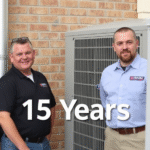
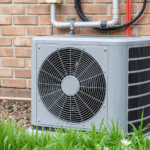
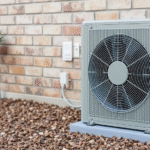
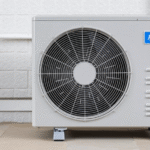
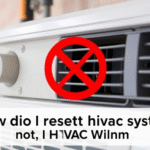
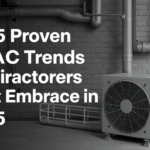
Leave a Reply